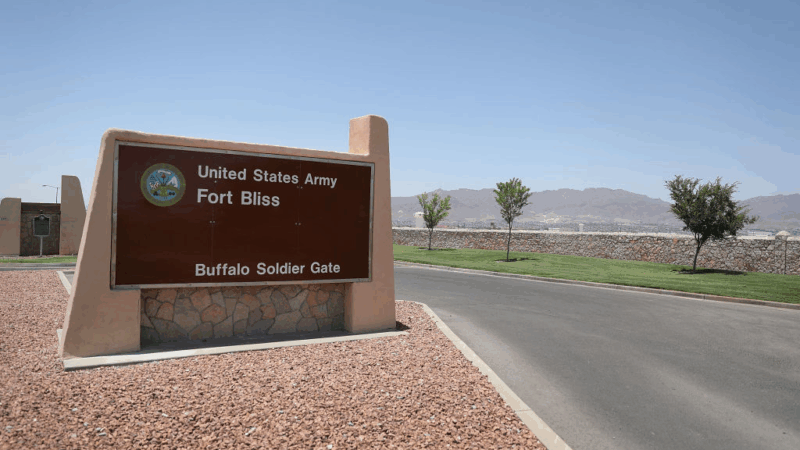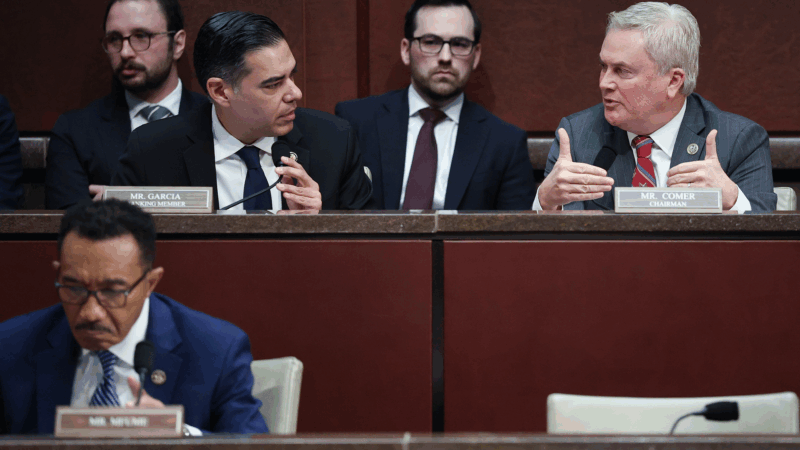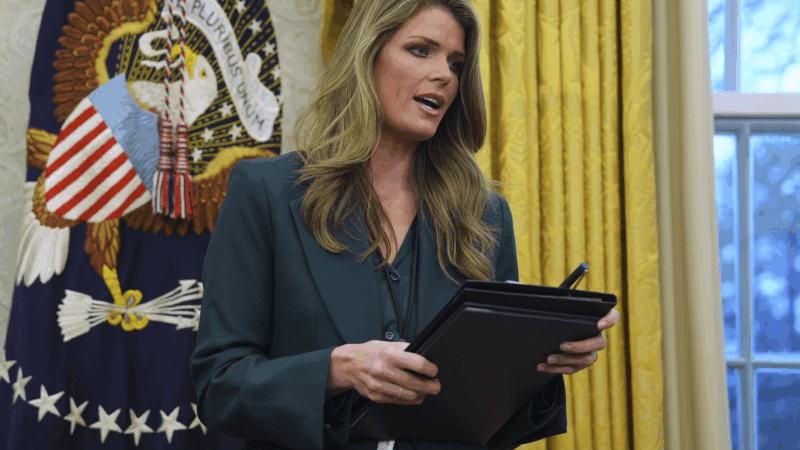Hamas is offering a truce with Israel for five to ten years, a U.S. official says
TEL AVIV, Israel — A senior U.S. official who held direct talks with Hamas says the group has proposed a five-to-ten-year truce with Israel.
President Trump’s hostage affairs envoy, Adam Boehler, told Israeli public broadcasting on Sunday that Hamas has offered to lay down its arms during that period and not be involved in governing Gaza, while the U.S. would take part in ensuring no Hamas tunnels or militant activity would crop up again.
It is the first time Hamas has been known to offer a timetable for a truce. Hamas and Israel had no comment.
In a round of U.S. and Israeli television interviews, Boehler said a new Israel-Hamas ceasefire deal could take hold in a matter of weeks.
“ I believe there is enough there to make a deal between what Hamas wants and what they’ve accepted, and what Israel wants and it’s accepted,” Boehler told CNN.
Israel, Hamas and the U.S. will take part in ceasefire talks in Qatar this week, with Trump Mideast envoy Steve Witkoff present — the most serious round of Israel-Hamas negotiations since President Trump was elected.
U.S. envoy defends his direct talks with Hamas, which angered Israel
Direct talks with Hamas are a sharp reversal of longstanding U.S. policy. The U.S. classifies Hamas as a terrorist group.
After his discussions with Hamas, Boehler said he tried to assuage the concerns of Israeli Strategic Affairs Minister Ron Dermer, a close confidant of Prime Minister Benjamin Netanyahu and leader of Israel’s ceasefire negotiations team.
“The reality is what I wanted to do is jumpstart some negotiations that were in a very fragile place, and I wanted to say to Hamas, what is the end game that you want here?” Boehler told CNN.
He said the talks began as an attempt to negotiate the release of an American-Israeli hostage still believed to be alive, along with the bodies of four American-Israeli dual citizens, but that they were an opening to try to reach a comprehensive deal to release all the remaining hostages.
Hamas in Gaza still holds 24 living hostages and the bodies of 35 Israeli hostages, according to Israel.
The most serious Israel-Hamas talks since Trump took office begin this week
U.S. Mideast envoy Witkoff will take part in Israel-Hamas talks in Qatar this week.
A working-level Israeli delegation is headed to Qatar on Monday, and Witkoff is expected in Doha on Tuesday, Israeli and U.S. officials said.
A new ceasefire deal is likely to take shape in the coming weeks, with the timing connected to the domestic Israeli politics of passing a budget, according to an official familiar with the matter, who was not authorized to speak publicly and spoke with NPR on condition of anonymity.
Netanyahu faces a political battle to stay in office, amid infighting in his right-wing coalition over enlisting ultra-Orthodox men to the military and disagreements over the national budget. His governing coalition could collapse and elections could be triggered if Israel does not pass the budget by the March 31 deadline.

Netanyahu is likely to wait to resolve the political crisis and pass the budget, ensuring his coalition’s stability, before striking another deal with Hamas that would be unpopular among his right-wing base.
Egypt has proposed a two-month ceasefire that would see American hostages released first, according to an Egyptian official familiar with the proposal who spoke to NPR on condition of anonymity.
Israel cut electricity to a Gaza water station
Israel on Sunday cut the electricity supply to a Gaza desalination plant providing drinking water to an estimated population of hundreds of thousands of people.
The plant will now be run on generators and will be able to provide only 2,500 cubic meters of water a day, down from the 18,000 cubic meters it was producing before, said Tania Hary of Gisha, an Israeli group advocating for Palestinian civilians in Gaza.
Since last week, Israel has also been blocking the supply of food, aid supplies and fuel to Gaza as a pressure tactic in ceasefire negotiations with Hamas. Aid groups are concerned about dwindling resources after a surge of aid during a January-February ceasefire.
“Every day that goes by we are edging closer to another sort of catastrophe. And that’s of course the point,” Hary said.
NPR’s Aya Batrawy in Dubai, Yanal Jabarin in Jerusalem and Abu Bakr Bashir in London contributed to this report.
Israeli fire strikes journalists and children in Gaza
Israeli forces on Wednesday killed at least 11 Palestinians in Gaza, including two boys, three journalists and a woman, hospitals said, on one of the enclave 's deadliest days since the ceasefire took effect.
Autopsy finds Cuban immigrant in ICE custody died of homicide due to asphyxia
A Cuban migrant held in solitary confinement at an immigration detention facility in Texas died after guards held him down, according to an autopsy report released Wednesday that ruled the death a homicide.
Confused by all the notices issued for intense winter weather? Here’s your guide
The National Weather Service issues a litany of notices before and during inclement weather events. They can be important signals on how to respond.
A massive winter storm will hit large parts of the U.S. through the weekend
A large storm system is expected to hit this weekend, with snow and ice from Texas to the Carolinas and up the Eastern seaboard. The winter system could bring more than a foot of snow.
House Oversight panel votes to hold Bill and Hillary Clinton in contempt of Congress
Republicans on the committee have been seeking to question the Clintons as part of a probe into the government's handling of the Jeffrey Epstein case. The vote sends the matter to the full House.
Lindsey Halligan, Trump’s former personal attorney, exits Virginia prosecutor’s office
The move comes after a federal judge wrote in court document that the "charade of Ms. Halligan masquerading as the United States Attorney … must come to an end."







